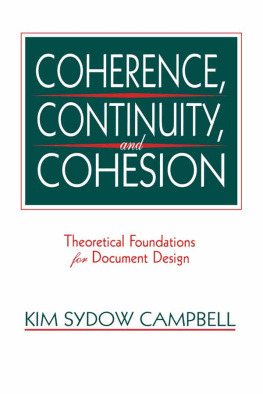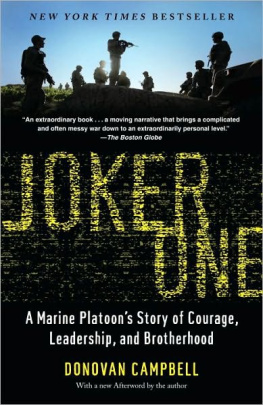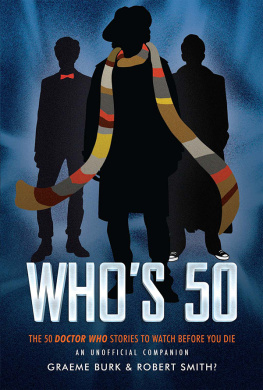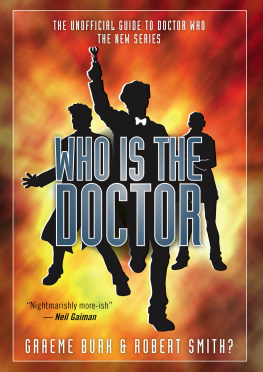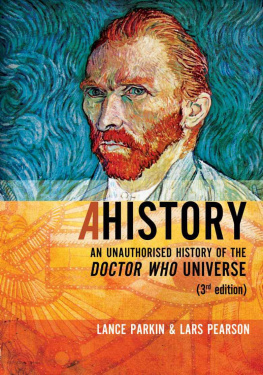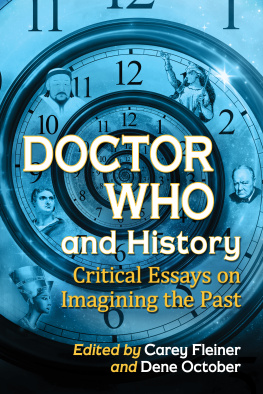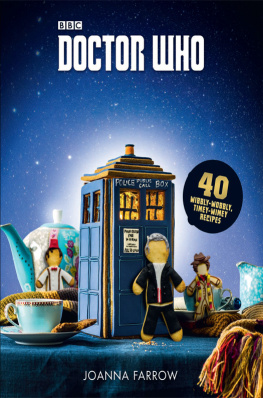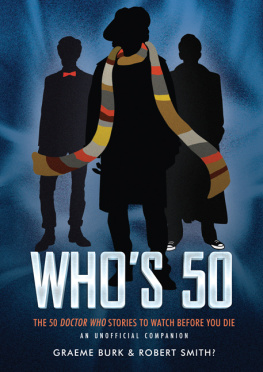There used to be people walking around who had lived through World War I and then, a generation or so later, went through it all again with World War II. When it comes to Doctor Who, I feel like that. I remember vividly the way Doctor Who and, almost more than Doctor Who, the Daleks! was a Beatlemania-type phenomenon in the early 1960s. I saw The Curse of the Daleks at the theatre, I owned a plastic Mechonoid, I had a battered paperback (it fell to pieces and was re placed) of The Dalek Pocketbook and Space Travellers Guide, I saw the two Peter Cushing films the week they opened, and I was watching television when with no advance notice! William Hartnell fell down and got up again as Patrick Troughton.
At some point, soon after, it became just another television programme: part of the schedule and important to watch like, say, Dads Army or Monty Python but not quite as huge as it had been. Thunderbirds and Batman came and went too, with much more merchandising, and even The Avengers didnt stay on the schedules quite as long as Doctor Who, which, as a childrens programme, was less liable to summary cancellation. Besides, the genius stroke of incorporating a change-over of leading actor into the premise meant it could theoretically go on forever. But it didnt. I stopped regularly watching the series just about the time K-9 showed up, but came back to it intermittently for the rest of its original run most of Peter Davisons first two seasons and, when the old stuff started being recycled on video or cable, I filled in the gaps Id missed, though without much enthusiasm. Seriously, John Nathan-Turner, what were you thinking ?
When the axe fell in 1989, it was long past due. Doctor Who began, and caught on, as a show which appealed to a wide audience it died when it appealed only to Doctor Who fans and even they scorned most of it. When it came back in 2005, it was like the 1960s all over again. It became the favourite programme of children of the new millennium , just as it had been my favourite programme when I was a child. The merchandising began, in a regimented way that made all those Dalek toys of the 60s seem half-hearted. This Who has had spin-off shows! We await the Im Gonna Spend My Christmas With a Dalek remix, though. The new Doctor Who has had highs and lows and troughs the way the old show did, and at the time of writing with Matt Smith in the offing and a years worth of dodgy specials it may just about be reaching its K-9 point. Or it may regenerate , again.
Whatever, as the Time Lords know, this is unlikely to be the final end and this is equally unlikely to be the last edition of this useful little book.
DOCTOR WHO: SELLING THE MYTH
Has Doctor Who ever been more popular?
In the last five years weve been treated to more than fifty new episodes of this once-defunct series. Weve gone through three new Doctors and a cornucopia of old baddies: Daleks, Cybermen, The Master, Davros, Sontarans, Silurians and erm the Macra. Alongside that weve had a surfeit of spin-off shows and specials: Totally Doctor Who, Torchwood, The Sarah Jane Adventures, Time Crash, The Infinite Quest, Doctor Who Live and erm K-9.
Back in the day, the idea of any TV spin-off of Doctor Who was a pretty wild notion. Remember how fandom gave a collective swoon at that lone pilot episode, K-9 and Company, in 1981? Who would have thought that, a quarter of a century on, it would have led to a hugely popular childrens series? Even at the height of the Daleks popularity in the late 60s, they never had their own show, despite creator Terry Nations canny wooing of the American market.
Doctor Whos current popularity may seem entirely positive. However, whilst it undoubtedly makes oodles of money for the cash-strapped BBC and its licensees, it also pushes our favourite programme into previously uncharted waters. Alongside Toy Story or Wallace and Gromit, Doctor Who is now perceived by anyone with any kind of business sense as a very fat cash cow. Dare I say with pendulous milk-filled udders? I dare.
Books, CDS, comics, magazines, annuals, toys, ties, socks, voice-changer helmets is there nothing that hasnt had the garish new Doctor Who logos plastered across it? Not a lot. Some of the merchandise is good, intelligent stuff. A lot of it isnt. The kids may beg for a Doctor Who pencil case, but itll be the Bank of Mum and Dad who has the final say-so. (Thats a yes then for the moment.)
Theres nothing wrong with pushing a successful brand, but this uniquely eccentric little show of ours is in danger of being watered-down so much that its famously indefinable magic may one day just wink out of existence.
The television programme itself is showing signs of a wobble. The 2009 gap year had a decidedly mixed reception , and 2011s split season (whilst making sound financial sense) is being met with similarly divided views. At the end of the day, we dont want novelty. We want damn good telly. Matt Smiths first season offered up much that was good, but compared with recent years it all seemed to this writer anyway rather prosaic.
I love Doctor Who. Ill always love Doctor Who. Matt Smith may be the best Doctor yet.
But if the BBC continues with its emphasis on populism over quality in its core business model (i.e. the programme itself), then things will go pear-shaped pretty quickly and it wont be long before you see those horrible new Dalek toys lining the shelves of Poundland
Actually, even if Doctor Who does go from strength to strength, it wont be long before you see those horrible new Dalek toys lining the shelves of Poundland
Mark Campbell
Plumstead, London, November 2010
Notes on the format:
Cast: Principal artistes only.
Crew: If Music is unlisted, no specially composed music was used.
Broadcast: Original UK transmission dates, followed by average rating in millions, with Novelisation (N), DVD, soundtrack CD and Audiobook (A) dates where relevant.
Prcis: The set-up in a nutshell.
Observations: Technical notes, locations and miscellaneous trivia.
Verdict: Is it any good?
Episodes are approximately twenty-five minutes in duration unless otherwise specified. All existent episodes up to Doctor Who (156) released on BBC Video between 19832003.
SEASON 1
Producer: Verity Lambert
Story Editor: David Whitaker
First Doctor: William Hartnell
Companions: Carole Ann Ford (Susan Foreman), William Russell (Ian Chesterton) & Jacqueline Hill (Barbara Wright)
1. AN UNEARTHLY CHILD (four episodes)
1: AN UNEARTHLY CHILD, 2: THE CAVE OF SKULLS, 3: THE FOREST OF FEAR, 4: THE FIREMAKER
Cast: Reg Cranfield (Policeman), Derek Newark (Za), Jeremy Young (Kal ), Alethea Charlton (Hur), Eileen Way (Old Mother), Howard Lang (Horg) | Crew: Director: Waris Hussein; Writer: Anthony Coburn; Music: Norman Kay |


